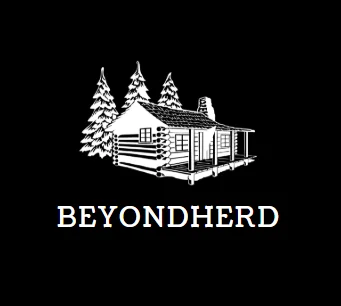Introduction:
In the present times, marked by fast-paced work environments and constant changes, the significance of retirement cards is growing more than ever. Retirement, once seen as a personal milestone, is now recognized as a shared journey that impacts not only the retiree but also the entire workplace. In this article, we’ll explore the expanding importance of retirement cards in simple terms, delving into the reasons why this tradition is becoming increasingly significant.
Acknowledging Changing Work Dynamics:
The landscape of work is evolving, with shifting dynamics, diverse teams, and a greater emphasis on work-life balance. In this changing environment, retirement cards play a crucial role in acknowledging the contributions of individuals who have navigated through different phases of their careers. It’s a way of honoring their dedication in the context of evolving work dynamics.
Expressing Gratitude in a Digital World:
In an era dominated by digital communication, the act of sharing retirement cards holds a unique significance. Amidst the emails and instant messages, a tangible retirement card provides a touch of personalization that digital messages may lack. It offers a chance for colleagues to express gratitude in a more tangible and heartfelt manner, standing out in the digital noise.
Building Emotional Connections:
The growing emphasis on emotional intelligence in the workplace highlights the importance of building emotional connections among colleagues. Retirement cards serve as a tool for nurturing these connections. Colleagues come together to share memories, express appreciation, and wish the retiree well, creating a tapestry of emotional connections that contribute to a positive work environment.
Embracing Inclusivity:
In today’s diverse workplaces, inclusivity is a core value. Retirement card embrace inclusivity by providing a platform for colleagues from various departments, backgrounds, and roles to participate in the celebration. This inclusivity sends a powerful message about the value placed on every individual’s contributions, fostering a sense of belonging within the organization.
Valuing Individual Narratives:
Every employee’s journey is unique, shaped by their skills, experiences, and personal narratives. Retirement cards celebrate these individual stories. Whether through anecdotes, well-wishes, or personalized messages, retirement cards emphasize the importance of each person’s journey, contributing to a workplace culture that values the richness of diverse experiences.
Supporting Well-Being and Mental Health:
As conversations around well-being and mental health gain prominence, retirement cards become a vehicle for supporting the retiree’s transition. The well-wishes and positive messages contained in these cards contribute to a supportive environment, recognizing the retiree’s contributions while providing emotional support during a significant life change.
Adapting to Remote Work Realities:
The rise of remote work has changed the way colleagues interact and celebrate milestones. Retirement cards, whether physical or digital, offer a versatile and adaptable way to bridge the virtual gap. Colleagues can contribute messages and well-wishes from different locations, ensuring that even in a remote work setting, the tradition of celebrating retirements remains intact.
Creating Lasting Legacies:
In a world where professional legacies hold increasing importance, retirement cards contribute to creating lasting impressions. The sentiments and memories captured in these cards become part of the retiree’s legacy within the organization. This emphasis on legacy-building aligns with the desire for professionals to leave a positive impact on the workplace.
Balancing Tradition and Innovation:
The growing significance of retirement cards lies in their ability to balance tradition and innovation. While the act of exchanging cards is a traditional gesture, the content and format of these cards can adapt to contemporary trends. This balance ensures that the tradition remains relevant and meaningful in the present times.
Enhancing Workplace Culture:
Ultimately, the significance of retirement cards in the present times lies in their role as contributors to a positive workplace culture. By expressing gratitude, building emotional connections, embracing inclusivity, supporting well-being, and creating lasting legacies, retirement cards enhance the overall culture of the workplace. They contribute to an environment where individuals feel valued, connected, and appreciated throughout their professional journey.
Navigating Transitions in the Gig Economy:
In the contemporary landscape, the gig economy is reshaping traditional notions of employment. Retirement cards, with their emphasis on celebrating a person’s entire career, play a crucial role in navigating transitions within this dynamic environment. They provide a means to honor individuals who may have contributed to the organization in various capacities and highlight the importance of recognizing diverse career paths.
Encouraging Lifelong Learning and Development:
Retirement cards contribute to a workplace ethos that values lifelong learning and development. As colleagues reflect on the retiree’s career journey, it becomes an opportunity to appreciate the continuous growth and adaptation that occurs throughout one’s professional life. This celebration of ongoing learning aligns with the evolving nature of work and the need for individuals to adapt to new challenges and opportunities.
Conclusion:
In simple words, the growing significance of retirement cards in present times is a testament to their ability to adapt to changing work dynamics, express gratitude in a digital age, build emotional connections, embrace inclusivity, value individual narratives, support well-being, adapt to remote work realities, create lasting legacies, and balance tradition and innovation. These cards are not just tokens of farewell; they are symbols of appreciation, connection, and celebration in a world where the importance of acknowledging individual contributions is more pronounced than ever.

A captivating wordsmith and dynamic blogger. With her pen as her wand, she weaves enchanting tales and thought-provoking insights that leave readers spellbound. Embrace the magic of her storytelling prowess and embark on an unforgettable literary journey with this talented writer.





![Human Gathering Cults [Is it a Scam?] 6 Human Gathering Cults](https://beyondherd.com/wp-content/uploads/2024/05/Human-Gathering-Cults.webp)